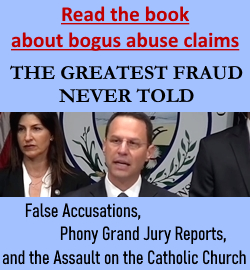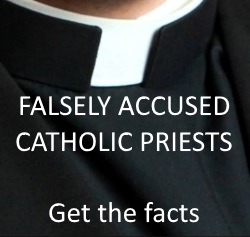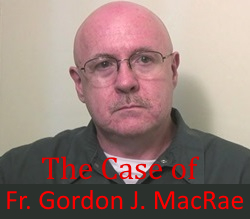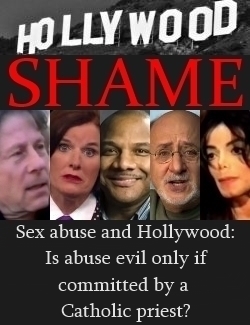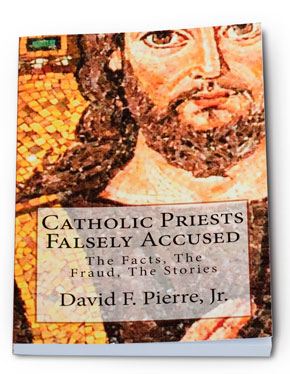In an incredibly frustrating piece, "What the Bible really says about gays" (July 18, 2005, Los Angeles Times), columnist Michael McGough treads the line of journalistic integrity when he references the web site of a college student [link] as serious Biblical scholarship.
Yikes! Is this the kind of journalism resulting from the new "ethics guidelines" announced by the Los Angeles Times last week? Using the independent work of a college student as scholarship?
The thrust of McGough's piece is in advancing the sham that the Bible does not "really" condemn homosexual behavior. Of course, this brand of revisionism is nothing new (e.g., John Boswell, 1980), though McGough's article appears to suggest otherwise.
Using the student's web site as a guide, McGough promulgates a number of easily refutable canards:
1. The "real sin" of the city of Sodom was a "breach of hospitality."
In other words, McGough wants us to believe that Sodom was relegated to the heap of infamy not for the pandemic sin and licentiousness of its citizens, but for merely exhibiting bad manners to their visitors (pointing to the story of Lot in Genesis 19 [link (NAB)].
Again – this "theory" is not new. Several have debunked this position. However, one of the country's leading apologists, Greg Koukl, has written an especially clear article, "What was the Sin of Sodom and Gomorrah?", on this issue.*
Koukl explains that Biblical text makes it clear that "the sin of Sodom and Gomorrah was some kind of activity—a grave, ongoing, lawless, sensuous activity," and the understanding of these actions is clear throughout the Bible. As Koukl notes, "there are 27 references outside of Genesis where Sodom is mentioned. It is emblematic of gross immorality, deepest depravity, and ultimate judgment." (emphasis added)
For example (emphases added, of course),
Jude 7: "Likewise, Sodom, Gomorrah, and the surrounding towns, which, in the same manner as they, indulged in sexual promiscuity and practiced unnatural vice, serve as an example by undergoing a punishment of eternal fire." (emphasis added)
2 Peter 2:6-8: "and if he condemned the cities of Sodom and Gomorrah (to destruction), reducing them to ashes, making them an example for the godless (people) of what is coming; and if he rescued Lot, a righteous man oppressed by the licentious conduct of unprincipled people (for day after day that righteous man living among them was tormented in his righteous soul at the lawless deeds that he saw and heard),"
Romans 9:29: "And as Isaiah predicted: 'Unless the Lord of hosts had left us descendants, we would have become like Sodom and have been made like Gomorrah.'"
It is especially important to note that Lot (in 2 Peter 2, in reference to Genesis 19) was oppressed by "licentious conduct" and tormented by the "lawless deeds" that he "saw and heard" "day after day." In other words, the behavior was ongoing. The "real sin" of Sodom went far beyond a simple "breach of hospitality," as McGough and his college student (Justin Cannon) contend. In light of full context, their suggestion of something otherwise is almost silly. By the way, Cannon's study completely ignores the Jude and 2 Peter verses.
Again, for even more on this, Koukl's article is very recommended. [Also ... Straight & Narrow? Compassion & Clarity in the Homosexuality Debate is a book by Thomas Schmidt that also deals with this topic. According to this review, Schmidt "is at his best discussing the biblical material ... He interacts with and refutes pro-gay scholars like D. S. Bailey, John Boswell, L. William Countryman, Robin Scroggs." (link to publisher).]
2. Leviticus 18:22 ("You shall not lie with a male as with a woman; such a thing is an abomination") is not a condemnation of homosexuality, but a rule against making an "insult to patriarchy" (McGough).
McGough and Cannon try to tout the case that the well-known Leviticus verse has been widely misunderstood. The verse is not a denouncement of homosexuality, they say, but an affirmation of the superiority of men over women in Hebrew culture.
This interpretation is almost laughable when viewing the context in which the verse actually appears. Look at the other verses that come right before and after Leviticus 18:22.
20 You shall not have carnal relations with your neighbor's wife, defiling yourself with her.
21 You shall not offer any of your offspring to be immolated to Molech, thus profaning the name of your God. I am the LORD.
22 You shall not lie with a male as with a woman; such a thing is an abomination.
23 You shall not have carnal relations with an animal, defiling yourself with it; nor shall a woman set herself in front of an animal to mate with it; such things are abhorrent.
24 Do not defile yourselves by any of these things by which the nations whom I am driving out of your way have defiled themselves.
The verses immediately before verse 22 address committing adultery and the sacrifice and burning of children. The verse immediately after 22 addresses having sex with animals (bestiality). Yet McGough and Cannon would have us believe that this verse simply addresses the roles of the "dominant male and a subordinate female” and "abusive cultic practices" (Cannon).
McGough and Cannon also brush over the other significant passage condemning homosexuality, Leviticus 20:13: "If a man lies with a male as with a woman, both of them shall be put to death for their abominable deed; they have forfeited their lives."
Again, the context of Leviticus 20:13 (Leviticus 20 outlines the Mosaic penalties for sin).
10 If a man commits adultery with his neighbor's wife, both the adulterer and the adulteress shall be put to death.
11 If a man disgraces his father by lying with his father's wife, both the man and his stepmother shall be put to death; they have forfeited their lives.
12 If a man lies with his daughter-in-law, both of them shall be put to death; since they have committed an abhorrent deed, they have forfeited their lives.
13 If a man lies with a male as with a woman, both of them shall be put to death for their abominable deed; they have forfeited their lives.
14 If a man marries a woman and her mother also, the man and the two women as well shall be burned to death for their shameful conduct, so that such shamefulness may not be found among you.
15 If a man has carnal relations with an animal, the man shall be put to death, and the animal shall be slain.
16 If a woman goes up to any animal to mate with it, the woman and the animal shall be slain; let them both be put to death; their lives are forfeit.
In seeing the context of Leviticus 20:13, it's easy to see why McGough and Cannon want to ignore this verse.
3. "[T]he New Testament itself contains its own literal conundrums. In the Epistle to the Romans, St. Paul asserts that a man is justified by faith without the deeds of the law.' But in the Epistle of James, he says: 'A man is justified by works and not by faith alone.'"
Quite simply, there is no "conundrum." Again, it's important to look at the context of each of the different passages.
For some excellent reading on this, try Jimmy Akin~, "Not By Faith Alone" ; Peter Kreeft^, "On the relation of faith to works"; Greg Koukl, "Faith & Works: Paul vs. James"; and/or Kenneth J. Howell`, "Aren't We Saved by Faith Alone?"
(As a side note: From experience, it seems this "issue" is often raised by people who have not actually studied the Bible very much.)
4. "After all, Paul, a religious genius but a man of his time, professed more than a few beliefs that are anathema to many contemporary Christians."
An interesting statement. Too bad McGough does not provide a supporting example!
5. "The Book of Acts recounts how the church (Peter and friends) are prompted by the Holy Spirit 'to question and reinterpret what they would previously have seen as a clear commandment … not to associate with a particular group of people who were considered unclean.'"
McGough appears to be quoting directly from the Book of Acts, but he isn't. He is quoting a report from the Episcopal Church of the United States, which he references earlier in the paragraph. This is a sloppy use of quotation marks by McGough.
6. "There is an alternative to passage-by-passage literal arguments — one that calls for the courageous assertion that Scripture can be reinterpreted, and sometimes repudiated, on the basis of the lived experience of Christians, guided by the Holy Spirit."
First of all, in citing the work of Justin Cannon, McGough endorses Cannon's "passage-by-passage, literal" approach! Cannon's strategy entails dissecting Hebrew and Greek translations. This certainly appears to be a somewhat "literal" approach.
But more importantly, McGough's remark flies in the face of a number of important Bible passages. According to the Bible, "reinterpretation" or "repudiation" of Scripture is certainly not a "courageous assertion"!
For example,
2 Peter 1:20-21: "Know this first of all, that there is no prophecy of scripture that is a matter of personal interpretation, for no prophecy ever came through human will; but rather human beings moved by the holy Spirit spoke under the influence of God."
2 Peter 3:16b-17: "In them [Paul's letters] there are some things hard to understand that the ignorant and unstable distort to their own destruction, just as they do the other scriptures. Therefore, beloved, since you are forewarned, be on your guard not to be led into the error of the unprincipled and to fall from your own stability."
2 Timothy 3:16-17: "All scripture is inspired by God and is useful for teaching, for refutation, for correction, and for training in righteousness, so that one who belongs to God may be competent, equipped for every good work."
Isaiah 55:8: "For my thoughts are not your thoughts, nor are your ways my ways, says the LORD."
John 1:1-2: "In the beginning was the Word, and the Word was with God, and the Word was God. He was in the beginning with God."
TheMediaReport.com says … The Times' reflections on politics are often difficult to endure, but these ventures into religion are particularly frustrating. McGough's column appears to lack a sound knowledge of the Bible and Christianity, and it appears to have been written simply to advance a political viewpoint.
* Lest I be criticized for referencing a web site like McGough did: Koukl knows what he's talking about. He is a nationally recognized author, radio host, and speaker, and he is the founder of Stand to Reason, an especially effective apologetics organization. "Greg received his B.A. in Bible from Azusa Pacific University, his Masters in Christian Apologetics from Simon Greenleaf University and is working on his Masters In Philosophy of Religion and Ethics at Talbot School of Theology." (about Greg Koukl)
~ Jimmy Akin is the director of apologetics at Catholic Answers.
^ Peter Kreeft is one of the leading Catholic theologians and apologists today. He is professor of theology at Boston College. He is the author of over 40 books.
` Kenneth Howell is a writer for This Rock magazine, a Catholic apologetics publication.
